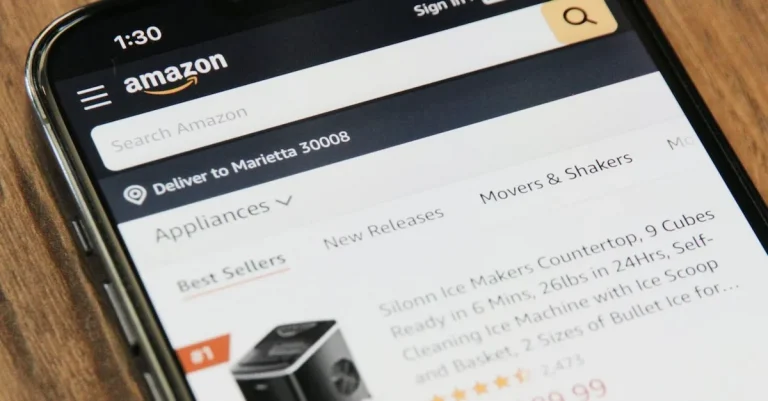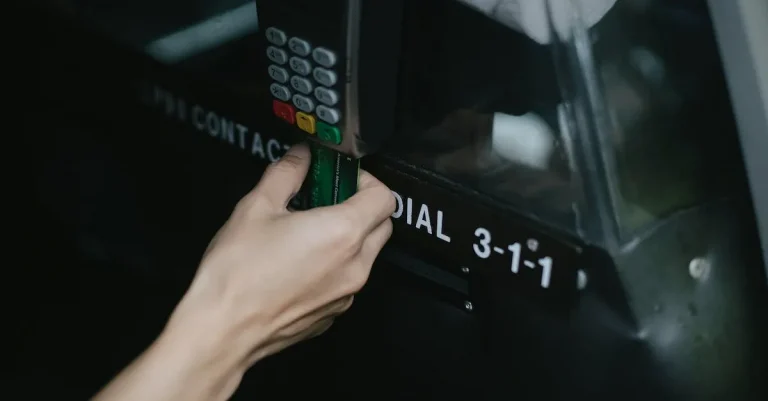Can A Family Member Use My Ebt Card?
If you rely on food stamps to help feed your family, you may wonder if you can let relatives use your EBT card for groceries or other expenses.
This is an understandable question for any EBT recipient working to make ends meet.
If you’re short on time, here’s the quick answer: Yes, a family member can use another person’s EBT card, provided that they belong to the same household.
In this comprehensive 2000-word guide, we’ll explain everything you need to know about EBT card use by family members.
We’ll provide a quick answer upfront, then dive into details on program rules, eligible uses, limitations, and risks. We’ll also give tips for properly sharing benefits with relatives while avoiding misuse.
EBT Card Use Overview
Using an Electronic Benefits Transfer (EBT) card can be a convenient way for individuals and families to access government assistance programs such as the Supplemental Nutrition Assistance Program (SNAP) and cash benefits.
EBT cards work similarly to debit cards, allowing users to make purchases at authorized retailers and withdraw cash from ATMs. However, it is important to understand the specific guidelines and restrictions that apply to EBT card use.
What is EBT?
EBT stands for Electronic Benefits Transfer. It is a system that allows recipients of government assistance programs to access their benefits electronically.
Instead of receiving paper checks or vouchers, eligible individuals receive an EBT card, which is loaded with their benefits. This card can be used at authorized retailers to purchase eligible food items and other necessities.
SNAP and Food Stamps
The Supplemental Nutrition Assistance Program (SNAP), formerly known as food stamps, is the largest federal assistance program aimed at providing low-income individuals and families with access to nutritious food.
SNAP benefits are typically loaded onto an EBT card on a monthly basis.
Recipients can use their EBT cards to purchase a wide variety of food items, including fruits, vegetables, dairy products, meat, and more. However, there are certain restrictions on what can be purchased with SNAP benefits, such as alcohol, tobacco, and hot prepared foods.
It is important to note that each state has its own specific guidelines regarding SNAP eligibility and benefit amounts.
Individuals interested in applying for SNAP benefits should visit their state’s SNAP website from this directory, www.fns.usda.gov/snap/state-directory, for more information.
Cash Benefits
In addition to SNAP benefits, some individuals may also be eligible for cash benefits through programs like Temporary Assistance for Needy Families (TANF). These cash benefits are typically provided to help families meet basic needs, such as housing, utilities, and clothing.
Similar to SNAP benefits, cash benefits are loaded onto an EBT card and can be accessed through ATMs or used for purchases at authorized retailers.
It is essential to understand that cash benefits can only be used for specific purposes outlined by the program. Misuse or improper use of cash benefits can result in penalties or loss of benefits.
Recipients should familiarize themselves with the guidelines provided by their state’s program to ensure they are using their benefits appropriately.
Rules for Sharing EBT Cards
When it comes to sharing Electronic Benefit Transfer (EBT) cards, there are specific rules and regulations that must be followed.
These rules are in place to ensure that the benefits are used appropriately and only by those who are eligible.
Authorized users
An EBT card is issued to a specific individual or household, and typically, only that person or household is authorized to use the card. However, there are exceptions to this rule.
In some cases, family members may be allowed to use the EBT card, but only if they are part of the same household and meet the eligibility requirements.
For example, if a parent is the primary cardholder and has children living with them, those children may be able to use the EBT card to purchase eligible items. However, it’s important to note that not all family members will be automatically authorized to use the card.
In addition, any member of your household may be authorized to utilize your EBT card, provided that they have knowledge of your confidential Personal Identification Number (PIN). The PIN serves the dual purpose of safeguarding your SNAP benefits and verifying the card’s rightful ownership.
While some states require a photo of the primary recipient of SNAP benefits on the EBT card, it does not hinder an authorized person other than the person in the photo from using the EBT card.
Retailers accepting EBT transactions are obligated to permit the use of the EBT card by any member of the household. This ensures equitable access to SNAP benefits for all eligible individuals within the household, especially those older adults who cannot physically go out to buy their essential needs.
Each state has its own guidelines and restrictions, so it’s crucial to check with the relevant government agency or website for specific information.
Limitations on eligibility
While some family members may be eligible to use the EBT card, there are limitations on what can be purchased with the benefits.
EBT cards can only be used to buy eligible food items, such as fruits, vegetables, meat, dairy products, and bread. They cannot be used to purchase non-food items, such as alcohol, tobacco, or household supplies.
Additionally, there are income and resource limits that determine eligibility for receiving EBT benefits. These limits vary by state and are regularly updated to reflect changes in the cost of living and other factors.
It’s important to review the specific eligibility requirements for your state to determine if you or your family members qualify for EBT benefits.
Penalties for misuse
Misusing an EBT card is a serious offense and can result in severe penalties.
If someone uses an EBT card for unauthorized purchases or allows someone else to use their card who is not eligible, they may face consequences such as fines, loss of benefits, or even criminal charges.
It’s crucial to understand and abide by the rules and regulations surrounding EBT card usage to avoid any potential penalties or legal issues.
If you have questions or concerns about the appropriate use of an EBT card, it’s best to consult the official government website or contact the relevant agency for guidance.
Proper Use of EBT Cards
While EBT cards provide much-needed assistance, it is important to understand their proper use to ensure that benefits are used ethically, fraud is avoided, and eligible family members can benefit as authorized users.
Using benefits ethically
When using an EBT card, it is crucial to remember that benefits are intended to be used for essential items such as groceries and household necessities. It is important to use the benefits for their intended purpose and not for non-essential items or non-food items.
This ensures that the assistance reaches those who truly need it and helps promote responsible use of the benefits.
Additionally, it is important to be mindful of the budget and spend the benefits wisely.
Planning meals, making a shopping list, and comparing prices can help stretch the benefits further and ensure that nutritious and affordable food is purchased.
Avoiding fraud
EBT card fraud is a serious offense and can result in penalties, including loss of benefits, fines, and even imprisonment. It is important to be aware of the actions that constitute fraud and avoid engaging in them.
Some common examples of EBT card fraud include selling or trading benefits for cash, using someone else’s EBT card without authorization, and making false statements to obtain benefits.
If you suspect any fraudulent activity related to EBT cards, it is important to report it to the appropriate authorities. This helps protect the integrity of the program and ensures that benefits are provided to those who genuinely need them.
Seeking eligible relatives as authorized users
In some cases, it is possible for eligible family members to be authorized users on an EBT card. This can be particularly helpful in situations where a family member is unable to use the card themselves due to age, disability, or other reasons.
Authorized users must meet the eligibility criteria and may be required to provide documentation to prove their relationship to the primary cardholder.
It is important to note that not all states have provisions for authorized users on EBT cards, so it is essential to check with the relevant authorities to understand the specific guidelines and requirements in your area.
For more information on the proper use of EBT cards and eligibility requirements for authorized users, you can visit the official website of the Supplemental Nutrition Assistance Program (SNAP) at https://www.fns.usda.gov/snap.
Tips for Managing Shared Benefits
Sharing an Electronic Benefits Transfer (EBT) card with a family member can be a convenient way to manage household expenses.
However, it’s important to establish clear guidelines and communication to ensure that the benefits are used responsibly and effectively.
Here are some tips to help you manage shared benefits:
Set ground rules
Before sharing your EBT card with a family member, it’s important to set clear ground rules. Discuss how the benefits will be used, what items are eligible for purchase, and any limitations or restrictions.
By establishing these rules upfront, you can avoid misunderstandings or conflicts down the line.
Track spending
Keeping track of your spending is crucial when sharing benefits.
Create a system where both you and your family members can easily record and review the transactions made using the EBT card. This will help you stay within your budget and identify any unauthorized or excessive spending.
Communicate regularly
Open and regular communication is key to effectively managing shared benefits.
Schedule regular check-ins with your family member to discuss any changes in circumstances or needs. This will help you adjust your budget and make necessary adjustments to ensure that everyone’s needs are met.
Keep the card secure
Protecting the security of your EBT card is essential. Keep it in a safe place, and never share your PIN or personal information with anyone.
If your card is lost or stolen, report it immediately to your state’s EBT customer service hotline. They can assist you in getting a replacement card and protecting your benefits from unauthorized use.
By following these tips, you can effectively manage shared benefits and ensure that your EBT card is used responsibly. Remember, open communication and setting clear guidelines are key to maintaining a harmonious arrangement that benefits everyone involved.
Conclusion
While you can share your EBT card with relatives in some cases, it’s important to follow program rules carefully. Benefits are intended for your household, and misuse could lead to penalties or card suspension.
By planning ahead, tracking expenses, and designating eligible relatives as authorized users, you can properly leverage food stamps and cash assistance to support your whole family.
Follow the pieces of advice in this guide to use your EBT ethically and avoid potential issues.









